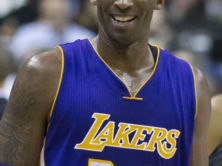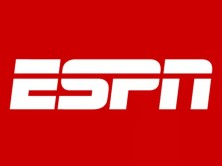Poynter will serve effectively as ombudsman for ESPN for the next 18 months. (Credit: Poynter)
Yesterday, ESPN and Poynter announced that they are working together on something called “The Poynter Review Project.” However, the press release, published by ESPN and linked to by Poynter, didn’t disclose the details of the arrangement — most notably if any money was changing hands in this deal.
Through the project, three members of Poynter faculty are to serve essentially as an extension of ESPN’s ombudsman role by providing “monthly essays and additional timely responses as issues arise.” The project is to last 18 months.
iMediaEthics wrote to the three Poynter faculty mentioned asking more information, specifically about the financial arrangement. We heard back from Poynter president Karen Dunlap Feb. 25 at 7:15 PM EST, and are posting the full Q & A here.
iMediaEthics : The press release doesn’t offer much information about the background of the arrangement. Will Poynter or its employees be paid or receive any financial donation or contribution from ESPN? Is any money, in-kind gift or material gift exchanging hands in this deal?
Poynter: Poynter will be paid in the arrangement, very much like we have been in other agreements
with organizations.
iMediaEthics : If yes, where is this disclosure and will the disclosure be made on individual articles/news alerts/briefs?
Poynter: The first column written by Poynter faculty will explain the review project. That’s a good place for them to disclose that Poynter will be paid, but I don’t expect to release the amount. We usually don’t do that in business agreements.
iMediaEthics: What are the terms of Poynter’s contract with ESPN?
Poynter: Some of the terms of our work are mentioned in the announcement: three faculty will participate; the length of the project is expected to be 18 months. Since they will have something of an insider’s view at ESPN, faculty are to limit their comments on ESPN to what they write in columns and teach from those columns. That’s not unusual in working with organizations.
iMediaEthics : Kelly McBride, Regina McCombs and Butch Ward are listed as contributing to the project. How many Poynter representatives in total will work with/on this project?
Poynter: The three faculty are the only ones acting in the project. Stephen Buckley, Poynter’s dean, will confer with them.
iMediaEthics: Who initiated this arrangement? ESPN or Poynter?
Poynter: From time to time various organizations have explored a plan with Poynter focused on values. In this case, ESPN approached us as the tenure of their ombudsman ended.
iMediaEthics : Will Poynter work with any other news outlets in this form of review/ombudsman role or is the agreement with ESPN exclusive?
Poynter: This form of review is something of an experiment for both organizations. I’m not sure that we would take on another similar project while working with ESPN because that would stretch our faculty’s capacity.ing Poynter and that ESPN did approach Poynter in this arrangement.
ESPN’s previous ombudsman, Don Ohlmeyer, recently published his last column as ombudsman for the sports network.
In the past year, ESPN has been criticized for many journalism ethics issues.
- This month, the New York Times revealed that three ESPN personalities had undisclosed endorsement deals with Nike — deals that even ESPN didn’t know about.
- In January, the Oregonian questioned the ethics of ESPN broadcaster Erin Andrews, who announced an endorsement deal with Reebok just two weeks after criticizing Nike shoes on air.
- Also in January, ESPN announcer Ron Franklin was fired after calling sideline reporter Jeannine Edwards “sweet baby” and “an expletive” in a “hotel hallway.”
- In December, ESPN anchor Will Selva was suspended after he plagiarized on air Orange County Register reporter Kevin Ding’s story on the San Antonio Spurs – Los Angeles Lakers game.
- Last summer, ESPN was strongly criticized for an hourlong program called The Decision to announce where LeBron James decided to sign. For the program, James selected his own interviewer and set the guidelines for the program — including who advertised and where the money earned went. ESPN’s ombudsman at the time, Don Ohlmeyer, also criticized the network for compromising itself and sensationalizing James’ decision.






